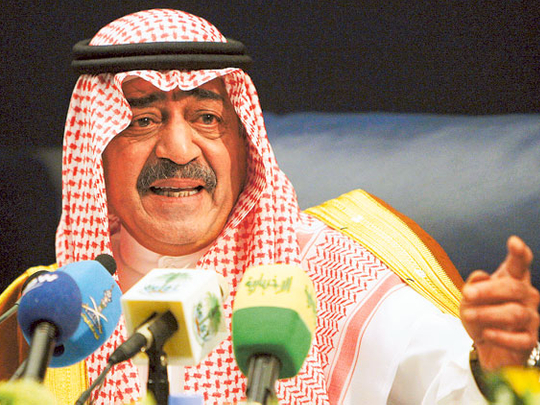
Riyadh: Although seasoned observers were not surprised by the royal decree that formally appointed second Deputy Prime Minister Prince Muqrin Bin Abdul Aziz as heir to heir apparent Prince Salman Bin Abdul Aziz, both the timing, as well as the process through which the selection was made, caught many off-guard.
However, observers believe the appointment was necessary to avoid a possible succession crisis by clarifying the process in writing.
On Thursday, a day before US President Barack Obama arrived in Riyadh, the monarch issued a royal decree that, remarkably, included a clause specifying that the order could not be altered. The ruler and his heir agreed that Prince Muqrin would become the next heir and, in time, accede the throne.
As expected, members of the ruling family, senior clerics, government officials, and Saudi citizens pledged their allegiance in several ceremonies across the country.
Prince Muqrin received well-wishers in Riyadh and deputised the Kingdom’s governors to accept allegiances on his behalf. He went to a local hospital to see the ailing Grand Mufti, Shaikh Abdul Aziz Al Shaikh, who backed the appointment and stated that: “The Custodian of the Two Holy Mosques King Abdullah made this appointment in the public interest and to safeguard the Kingdom’s stability, and I pledge my allegiance as well.”
Still, what is unclear is whether the country’s Allegiance Council was convened to approve this “order,” even if its past record was less than stellar.
In the event, the monarch may well have reached this decision for a variety of reasons, including the option to abdicate for health reasons although no one can confirm such an outcome.
Moreover, and in a slight departure from previous protocol, the ruler asked Allegiance Council members to assist the heir to the heir apparent in the selection of future officials.
In other words, and in what was yet another King Abdullah innovation on the succession matter, the order did not preclude the selection of princes from the next generation, grandchildren of the founder, though it insisted upon an orderly transition process to buttress internal stability.
As in all monarchical systems, the process through which a selection is made considered lineage, although meritocracy is also a key factor. What preoccupied analysts was the putative handing of power to the next generation, though the record illustrates that the Al Saud family has displayed impeccable discipline on all succession matters.
What stood out was the Al Saud family’s staunch commitments to uphold their dynasty as well as the country’s interests above all else. Those who now expect a full-blown internal power struggle were likely to be disappointed as King Abdullah’s various innovations forestalled potential family disputes.










